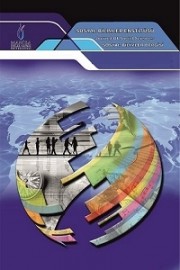Türkiye Serbest Bölgelerinin Kümeleme Analizi İle Karşilaştirilmasi
Comparison of Turkish Free Trade Zones with Clustering Analysis
Author(s): Tuğçe Danaci, O. Murat KOÇTÜRKSubject(s): National Economy, Economic policy, International relations/trade, Economic development, Fiscal Politics / Budgeting
Published by: Celal Bayar Üniversitesi Sosyal Bilimler Enstitüsü
Keywords: Free Trade Zones; Foreign Trade; Import; Export;
Summary/Abstract: Countries aim to minimize the customs procedures, periods and customs duties due to the increase of international trade transactions. To this end, regional integrations and free trade agreements are made, and the importance of free zones within the country is also increasing. Free zones are regions that are physically separated from other parts of the country, although they are located within the political boundaries of the country and are granted exemptions and immunities in foreign trade transactions. There are 19 free zones in Turkey. Activities such as production, buying and selling, assembly and storage are carried out in these regions which have many advantages particularly in terms of the exception of customs duties. In this study, it is aimed to reveal the similarities and differences of free trade zones in Turkey by using data regarding foreign trade volume, employment, establishment area and number of firms operating in free zones in Turkey. In this respect, these variables belonging to the free zones operating in Turkey are examined by hierarchical clustering analysis. In addition, area and labor productivity of each free zone is calculated by using foreign trade statistics. At the end of the analysis, the free zones are separated into four clusters. Aegean Free Zone has formed a cluster alone, with greater variance compared to other free zones within the scope of the variables included in the analysis. Besides, Bursa and Mersin free zones constitute the second; Europe, Istanbul Industry and Commerce, Kayseri and Antalya free zones constitute the third; Adana-Yumurtalık, Tubitak Mam Technology, Kocaeli, İzmir, Istanbul Atatürk Airport (AHL), Istanbul Trakya, Samsun, Denizli, Gaziantep free zones constitute the fourth and final cluster. Rize, Trabzon and Mardin Free zones are excluded from the analysis because they have less than 5 operating enterprises and low volume of foreign trade.
Journal: Celal Bayar Üniversitesi Sosyal Bilimler Dergisi
- Issue Year: 15/2017
- Issue No: 04
- Page Range: 351-370
- Page Count: 20
- Language: Turkish

